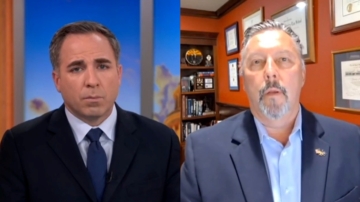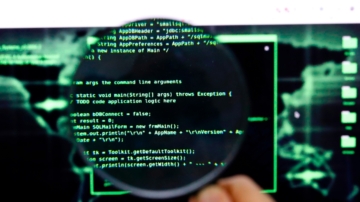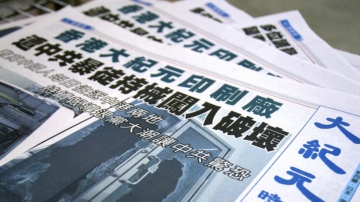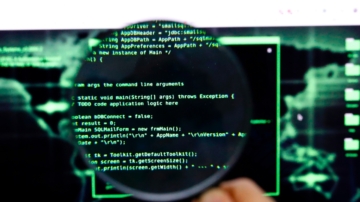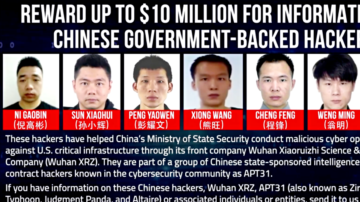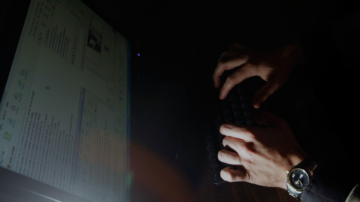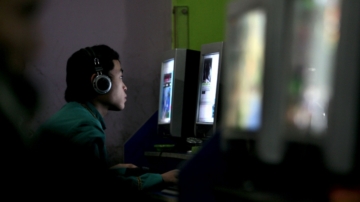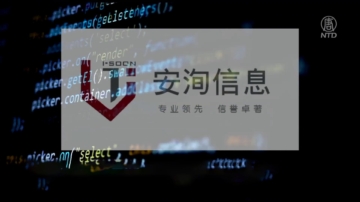【新唐人2013年09月11日讯】9号下午,中共最高法院、最高检察院公布了《两高关于办理利用信息网路实施诽谤等刑事案件适用法律若干问题的解释》,其中一项为诽谤罪设定的量化入罪标准,更是引发各界民众的强烈反弹。分析认为,这是中共在打造压制网路言论的恐怖氛围,等于给网民装了一个入罪的口袋,设了一道高压线,阻止他们发表批评中共的言论和进行网路反腐。
“两高”最新公布的所谓司法解释共有10条,涉及8个方面的内容。其中第3条列举了所谓“严重危害社会秩序和国家利益”的7种情形。另外,“两高”还特别对中共最近网络“打谣”运动做出了刑法司法解释,认定网路诽谤信息被点击5千次,或被转发5百次,便视作“情节严重”,当事人因此可能入狱3年。
北京时政观察人士华颇:“这个罪名是口袋罪,所谓扰乱公共秩序罪,这跟流氓罪一样,只要中共政府认为你的言行对它有所危害的时候,它就会用这个罪名来处置你,这也是结合前一阵子打击、抓捕一些网民的行动是相配合的。”
“两高”的司法解释一出台,北京维权人士胡佳9号立即发推文说:“中共政法委书记孟建柱是党国豢养的与周永康一样狠的恶犬,这次即使整肃周永康也不过是狗咬狗。欢迎孟建柱起诉我诽谤他。希望我的话在国内国外被转发500次,达到入刑标准。”
北京维权人士胡佳:“如果说它真要拿这条罪来制裁报复公民的话,我希望我成为被报复的第一个人,因为我这里面直指孟建柱政法委书记,他掌握着国家警察、国家安全,法院、检察院、监狱,这整套社会维稳系统,就是告诉他们,这条恶法我们根本不怕。”
中国“东南大学”法学院教授张赞宁指出,两高把网路诽谤定性为刑法犯罪,是越权。
中国“东南大学”法学院教授张赞宁:“根据立法的规定,两高只有解释法律的权力,把法律没有规定的东西认罪,等于侵犯了全国人大的权力,它这样做实际上是在创造法律,完全是违法违宪的,所以我认为全国人大应当对这个解释进行违宪审查。”
8月19号,中共总书记习近平在一次工作会议上强调,意识形态方面是中共的一项极端重要的工作。话音一落,中国各地公安配合中宣部紧急抓人,短短几天内,中共以网路造谣、传谣为由抓捕了数千人。
胡佳:“现在来讲很多官员受到强烈的批评,有些官员在任上,就受到网民的攻击,它等于就是给你设了一道高压线在那里,实际上是制造一种网路上的恐怖氛围,对言论的恐怖氛围,对官员批评这方面的话,可以起到一种扼制的作用。”
张赞宁表示,对于网络谣言和诽谤,受害人可以通过民事诉讼,提起侵权诉讼解决问题,当局根本不需要对这一行为动用刑法和公安系统。
华颇:“两高的司法解释是中国民主言论自由的一个大倒退,是力图堵信广大民众的嘴巴,但是这种作法是非常危险的,如果不让人民说话,人民就会用行动来说话。”
互联网时代,中国的微博、论坛等网路自媒体上,各种信息迅速传播,到处充斥着调侃及唾弃共产党及其党官的信息。
中国“权利运动”组织负责人胡军:“我们可以看到现在这个局势,中共本身来说,它已经看到了自己随时要崩溃,所以用这种方式来压制,它已看到在舆论这一块‘笔竿子’它彻底失守了,它这也是最后的一个垂死挣扎来挽回局势,可是它这样的做法恰恰造成了中共解体加速。”
9月10号,网路上热传一张月饼图,上面刻着“打倒中共”、“赶走中共”、“痛恨中共”、“咬死中共”。
采访编辑/李韵 后制/李勇
Chinese Internet Users Face Jail If Online Post Reaches 5,000 Hits
On September 9, China's supreme court and
top procuratorate jointly issued interpretation
on new regulations on online rumors.
It indicates that an internet user could be jailed if his
post reaches a defined quota of views or re-posts.
This regulation triggered widespread debate from netizens.
Analysts believe that the Chinese Communist Party
(CCP) is creating an atmosphere of online terror.
This is to crackdown on online freedom of expression.
The regulation targets each netizen who could be
charged, and is forceful in labeling netizens as criminals.
It also prevents netizens from publishing
criticism and revealing corruption online.
The new regulation has 10 guidelines covering eight aspects.
The third interpretation has seven scenarios about
"severely harming public order and national interests."
The new regulation particularly
explains crackdown on online rumors.
It said the internet users could face three
years in jail if rumors have been read
5,000 times, or reposted 500 times.
Hua Po, Beijing current affairs commentator:
"The label of criminal is forceful, such
as mentioning "disturbing public order".
It is hooliganism on the part of the CCP.
If one says something is not good for the
CCP, they will charge you with a crime.
It links with recent online suppression,
and the arresting of netizens."
On September 9, Beijing activist Hu Jia tweeted on this topic.
"Meng Jianzhu, Secretary of the Politics and Law Committee,
is the CCP's dog, and is the same as Zhou Yongkang.
The recent investigation over Zhou, is just like dogs fighting.
I welcome Meng Jianzhu to prosecute
me as I am slanderous about him.
I hope my words can be reposted 500 times
at home and abroad, to reach standard quotas."
Hu Jia:"If the CCP uses this rule as retaliation
on civilians, I hope I am the first one to be effected.
I directly spoke out to Meng Jianzhu, the boss of police,
public security, courts, procuratorates and prisons, and
the entire so-called "maintaining stabilization system".
I tell them that I am not afraid of this evil law."
Zhang Zanning, Professor at the Law School
of Southeast University in China, commented.
Zhang said that the authorities classified online rumors
as criminal charges, and they are not qualified to do so.
Zhang Zanning:"According to provisions of the
legislation, the Supreme court and highest
procuratorate only have the right to interpret law.
Now they have classified something as a crime,
but this is not listed in the law, and is violating
the power of National People's Congress (NPC).
Their act actually creates a law,
and is against the constitution.
I think the NPC should carry out
judicial review of the interpretation."
On August 19, the CCP leader Xi Jinping
stressed ideological work is very important.
Subsequently, the police started arresting people nationwide.
Within a few days, several thousand netizens were
arrested on allegations of creating and spreading rumors.
Hu Jia:"Now many officials were criticized.
Some of the officials were still exposed
by netizens during their tenure.
The new regulations are like circling
public expression as a "hazard area".
Actually, they are creating an atmosphere
of terror against online freedom of expression.
It intends to restrict topics criticizing
officials, and it just plays such a role."
Zhang Zanning said that regarding online
rumors and defamation, the victims can
sue another party to solve the problem.
It is not necessary to use criminal
law and the public security system.
Hua Po:"The interpretation that Supreme
court and top procuratorate issued, indicates
freedom of speech has taken a step backward.
They intend to silence the public.
This move is very dangerous.
If people can't speak, they will act."
Now is the internet era, and different information
is rapidly spread via China's Weibo microblog,
online forums and other social networks.
It is full of information condemning the CCP and its officials.
Hu Jun, founder of Human Rights Campaign in China:
"From the current situation we can see that
the CCP senses it is the time of its collapse.
They are using this way to suppress public
expression, and know its propaganda doesn't work.
This move is its last struggle of survival,
however, and only speeds up its collapse."
On September 10, a picture of a
mooncake was widely circulated online.
Some words had been written on it:"Down with the CCP",
"No More CCP", "Hate the CCP", "Kill the CCP".
“两高”最新公布的所谓司法解释共有10条,涉及8个方面的内容。其中第3条列举了所谓“严重危害社会秩序和国家利益”的7种情形。另外,“两高”还特别对中共最近网络“打谣”运动做出了刑法司法解释,认定网路诽谤信息被点击5千次,或被转发5百次,便视作“情节严重”,当事人因此可能入狱3年。
北京时政观察人士华颇:“这个罪名是口袋罪,所谓扰乱公共秩序罪,这跟流氓罪一样,只要中共政府认为你的言行对它有所危害的时候,它就会用这个罪名来处置你,这也是结合前一阵子打击、抓捕一些网民的行动是相配合的。”
“两高”的司法解释一出台,北京维权人士胡佳9号立即发推文说:“中共政法委书记孟建柱是党国豢养的与周永康一样狠的恶犬,这次即使整肃周永康也不过是狗咬狗。欢迎孟建柱起诉我诽谤他。希望我的话在国内国外被转发500次,达到入刑标准。”
北京维权人士胡佳:“如果说它真要拿这条罪来制裁报复公民的话,我希望我成为被报复的第一个人,因为我这里面直指孟建柱政法委书记,他掌握着国家警察、国家安全,法院、检察院、监狱,这整套社会维稳系统,就是告诉他们,这条恶法我们根本不怕。”
中国“东南大学”法学院教授张赞宁指出,两高把网路诽谤定性为刑法犯罪,是越权。
中国“东南大学”法学院教授张赞宁:“根据立法的规定,两高只有解释法律的权力,把法律没有规定的东西认罪,等于侵犯了全国人大的权力,它这样做实际上是在创造法律,完全是违法违宪的,所以我认为全国人大应当对这个解释进行违宪审查。”
8月19号,中共总书记习近平在一次工作会议上强调,意识形态方面是中共的一项极端重要的工作。话音一落,中国各地公安配合中宣部紧急抓人,短短几天内,中共以网路造谣、传谣为由抓捕了数千人。
胡佳:“现在来讲很多官员受到强烈的批评,有些官员在任上,就受到网民的攻击,它等于就是给你设了一道高压线在那里,实际上是制造一种网路上的恐怖氛围,对言论的恐怖氛围,对官员批评这方面的话,可以起到一种扼制的作用。”
张赞宁表示,对于网络谣言和诽谤,受害人可以通过民事诉讼,提起侵权诉讼解决问题,当局根本不需要对这一行为动用刑法和公安系统。
华颇:“两高的司法解释是中国民主言论自由的一个大倒退,是力图堵信广大民众的嘴巴,但是这种作法是非常危险的,如果不让人民说话,人民就会用行动来说话。”
互联网时代,中国的微博、论坛等网路自媒体上,各种信息迅速传播,到处充斥着调侃及唾弃共产党及其党官的信息。
中国“权利运动”组织负责人胡军:“我们可以看到现在这个局势,中共本身来说,它已经看到了自己随时要崩溃,所以用这种方式来压制,它已看到在舆论这一块‘笔竿子’它彻底失守了,它这也是最后的一个垂死挣扎来挽回局势,可是它这样的做法恰恰造成了中共解体加速。”
9月10号,网路上热传一张月饼图,上面刻着“打倒中共”、“赶走中共”、“痛恨中共”、“咬死中共”。
采访编辑/李韵 后制/李勇
Chinese Internet Users Face Jail If Online Post Reaches 5,000 Hits
On September 9, China's supreme court and
top procuratorate jointly issued interpretation
on new regulations on online rumors.
It indicates that an internet user could be jailed if his
post reaches a defined quota of views or re-posts.
This regulation triggered widespread debate from netizens.
Analysts believe that the Chinese Communist Party
(CCP) is creating an atmosphere of online terror.
This is to crackdown on online freedom of expression.
The regulation targets each netizen who could be
charged, and is forceful in labeling netizens as criminals.
It also prevents netizens from publishing
criticism and revealing corruption online.
The new regulation has 10 guidelines covering eight aspects.
The third interpretation has seven scenarios about
"severely harming public order and national interests."
The new regulation particularly
explains crackdown on online rumors.
It said the internet users could face three
years in jail if rumors have been read
5,000 times, or reposted 500 times.
Hua Po, Beijing current affairs commentator:
"The label of criminal is forceful, such
as mentioning "disturbing public order".
It is hooliganism on the part of the CCP.
If one says something is not good for the
CCP, they will charge you with a crime.
It links with recent online suppression,
and the arresting of netizens."
On September 9, Beijing activist Hu Jia tweeted on this topic.
"Meng Jianzhu, Secretary of the Politics and Law Committee,
is the CCP's dog, and is the same as Zhou Yongkang.
The recent investigation over Zhou, is just like dogs fighting.
I welcome Meng Jianzhu to prosecute
me as I am slanderous about him.
I hope my words can be reposted 500 times
at home and abroad, to reach standard quotas."
Hu Jia:"If the CCP uses this rule as retaliation
on civilians, I hope I am the first one to be effected.
I directly spoke out to Meng Jianzhu, the boss of police,
public security, courts, procuratorates and prisons, and
the entire so-called "maintaining stabilization system".
I tell them that I am not afraid of this evil law."
Zhang Zanning, Professor at the Law School
of Southeast University in China, commented.
Zhang said that the authorities classified online rumors
as criminal charges, and they are not qualified to do so.
Zhang Zanning:"According to provisions of the
legislation, the Supreme court and highest
procuratorate only have the right to interpret law.
Now they have classified something as a crime,
but this is not listed in the law, and is violating
the power of National People's Congress (NPC).
Their act actually creates a law,
and is against the constitution.
I think the NPC should carry out
judicial review of the interpretation."
On August 19, the CCP leader Xi Jinping
stressed ideological work is very important.
Subsequently, the police started arresting people nationwide.
Within a few days, several thousand netizens were
arrested on allegations of creating and spreading rumors.
Hu Jia:"Now many officials were criticized.
Some of the officials were still exposed
by netizens during their tenure.
The new regulations are like circling
public expression as a "hazard area".
Actually, they are creating an atmosphere
of terror against online freedom of expression.
It intends to restrict topics criticizing
officials, and it just plays such a role."
Zhang Zanning said that regarding online
rumors and defamation, the victims can
sue another party to solve the problem.
It is not necessary to use criminal
law and the public security system.
Hua Po:"The interpretation that Supreme
court and top procuratorate issued, indicates
freedom of speech has taken a step backward.
They intend to silence the public.
This move is very dangerous.
If people can't speak, they will act."
Now is the internet era, and different information
is rapidly spread via China's Weibo microblog,
online forums and other social networks.
It is full of information condemning the CCP and its officials.
Hu Jun, founder of Human Rights Campaign in China:
"From the current situation we can see that
the CCP senses it is the time of its collapse.
They are using this way to suppress public
expression, and know its propaganda doesn't work.
This move is its last struggle of survival,
however, and only speeds up its collapse."
On September 10, a picture of a
mooncake was widely circulated online.
Some words had been written on it:"Down with the CCP",
"No More CCP", "Hate the CCP", "Kill the CCP".

